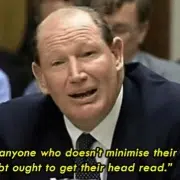What will a labor win mean for markets?
Labor win
The Labor’s election victory marks the end of the Coalition’s almost decade long reign. This election has seen several successful ‘teal’ Independents, including Monique Ryan, who ran against the incumbent Treasurer, Josh Frydenberg.
With such closely aligned policies between the major parties, the main risk for markets will come if the Labor needs to rely on the Greens to form government, as compromises could push the Labor down a far less business-friendly path than its election platform suggested.
Unlike the election platform of three years ago, the primary policy differences this election were negligible, with the Labor opting for a more moderate approach. The Labor’s election campaign focused largely on repairing the budget through economic growth, with priority areas of energy, skills, the digital economy, childcare, and manufacturing. A platform that except for climate policies, had a significant overlap with the Coalition.
Labor's renewable pledge
In his budget reply in March, Australia’s new PM Anthony Albanese promised to act on climate change and “seize the chance to transform our country into a renewable energy superpower”. The Labor’s Powering Australia plan, unveiled late last year, aims to achieve an economy-wide emissions cut of 43 per cent by 2030, and net zero emissions by 2050.
Mr Albanese also spoke about revitalising Australian manufacturing and powering that manufacturing with Australian made renewable energy. “Exporting resources will always be important to Australia’s economy. But we should also use our resources – like our minerals and rare earths – to make products like batteries here, instead of just shipping them offshore and importing the finished goods.”
What about markets?
In the three weeks following a Labor election victory, the Australian stock market has traditionally risen by an average of 0.6 percent.
Based on the average performance of the All Ordinaries index in the 15 trading days following each election since 1990, CommSec discovered that after a Labor victory, the stock market often performed worse than the average lift of 1.2 percent.
According to CommSec associate stock market analyst Divik Nigam, this pattern continued on the first trading day after the election.
“In elections held since 1990, on the trading day after the poll date, on average, the All Ordinaries Index ticked 0.3 per cent higher,” he said
“When the LNP won, the index delivered a 0.5 per cent increase, but when the Labor won, the index finished flat on average.”
However, the performance disparity was significantly narrower in the week following the election, according to CommSec, with an average rise of 0.1 percent overall and 0.2 percent after a Labor victory.
Since 1990, 11 federal elections have been conducted, with the Labor winning in 1990, 1993, 2007, and 2010.
Eight of the past 11 elections, including each one since 1998, have resulted in the All Ords moving up in the 15 trading days following the results.
“The four strongest post-election rallies happened in the 15 days following the 2016, 2010, 2013 and 2007 federal elections, when the All Ordinaries Index climbed by 4.6 per cent, 3.1 per cent, 3.1 per cent and 2.6 per cent, respectively,” said Mr Nigam.
Meanwhile, the All Ords has climbed by an average of 0.5 percent in the 15 days preceding up to the past 11 elections, including a 0.4 percent drop prior to the Labor victories.
“Even though elections may sway share markets and the currency in the short term, it is important to note that it is the earnings profile of companies and the strength of the economy that play greater roles in determining the long-term performance of the share market and the Aussie dollar,” Mr Nigam concluded.
While post-election market and currency jitters have traditionally been slightly more negative following a Labor win, ultimately economic and interest rate cycles have a more dominant impact on investment markets rather than specific policies under each government. This is because political parties are usually forced to adopt sensible policies if they wish to ensure rising living standards.
Arguably there has also been broad consensus in recent decades regarding key macro-economic fundamentals, being low inflation and free markets.
Regardless of the election outcome, the bigger question will be being able to govern effectively in a world of higher inflation and interest rates.









